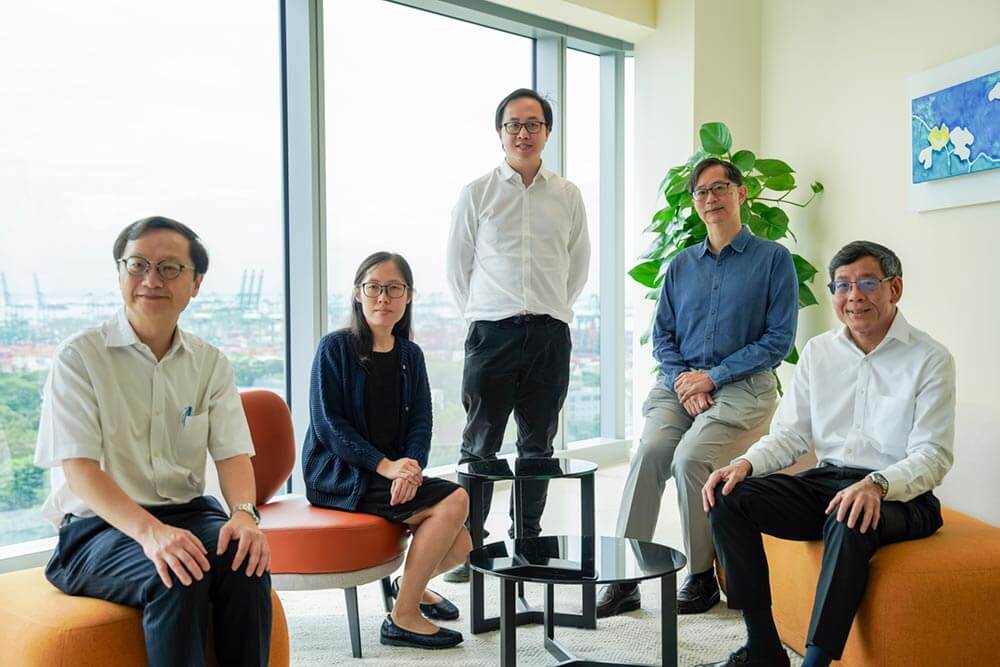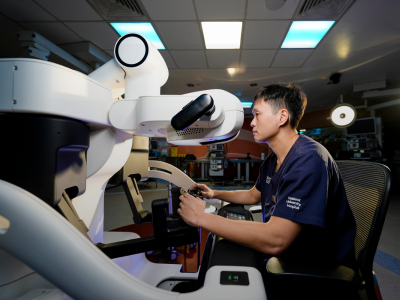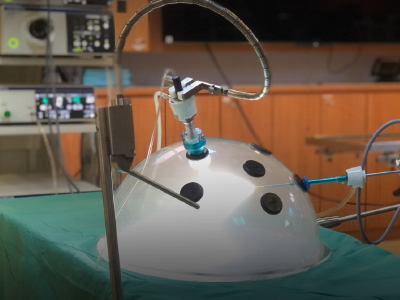Published on 27 December 2023
It ranks as the fourth most common cause of cancer-related deaths in men, claiming between 300 to 500 lives in Singapore annually.
Despite its deadly nature, stomach cancer often evades early detection since its symptoms rarely manifest. Consequently, around two-thirds of stomach cancer patients receive a diagnosis only in the advanced stages, which significantly reduces their chances of recovery.
However, thanks to a recent genomic study by researchers from the National University Hospital (NUH), Duke-NUS Medical School, National University of Singapore’s Yong Loo Lin School of Medicine (NUS Medicine) and Seoul National University, early detection of stomach cancer could soon become a reality.
A less invasive, more effective way to detect stomach cancer
In the study, it was found that patients suffering from intestinal metaplasia (IM) – a condition which often stems from chronic gastritis and manifests with symptoms akin to acid reflux – are six times more likely to develop stomach cancer.
The study — which represents the world’s largest genomic survey of patients with IM — examined over 1,100 tissue samples using cutting-edge technologies such as single-cell RNA sequencing and spatial transcriptomics. The former enables scientists to study genetic material (RNA) one cell at a time, while the latter sheds light on the way cells are organised and communicate with one another.

Researchers identified 26 'driver genes' that may play a pivotal role in the transformation of cells in patients with IM into stomach cancer.
“The comprehensive dataset we've assembled provides unprecedented insights into the progression of cell changes in the stomach to cancer,” said Prof Patrick Tan, Senior Vice Dean for Research at Duke-NUS and a Professor with the School’s Cancer & Stem Cell Biology Programme.
“By using both clinical information and genetic data from advanced molecular technologies, we can better predict which stomach conditions might turn into stomach cancer compared to using only clinical information. This can help in the development of new and more precise ways to prevent and stop stomach cancer.”
Commenting on the study’s clinical implications, co-senior author Prof Jimmy So, Head & Senior Consultant, Division of General Surgery (Upper Gastrointestinal Surgery),National University Hospital (NUH), said, “This molecular roadmap of disease progression from IM offers many translational opportunities.
“We can now explore more targeted surveillance for patients at highest risk, as well as anti-inflammatorial or antibiotic agents to intercept premalignant clones before they evolve into cancer, potentially leading to improved patient outcomes through early detection.”
Previous genetic studies on IM have mainly focused on patients who were already diagnosed with stomach cancer, but these are limited in their ability to predict who is likely to develop the disease and how the disease will progress.
Currently, stomach cancer in Singapore is typically detected using traditional methods such as endoscopy. The procedure is perceived to be expensive and invasive as it involves inserting a thin tube with a camera into the stomach through a patient’s mouth.
According to Prof Yeoh Khay Guan, Lead Principal Investigator of the Singapore Gastric Cancer Consortium and Senior Consultant in the Division of Gastroenterology & Hepatology at NUH, combining genomic data with clinical check-ups can improve the accuracy of stomach cancer predictions.
“This means we might use genetic tests, including simple and inexpensive blood tests, to identify IM patients who are at a very high risk of getting stomach cancer,” said Prof Yeoh. “This helps to save resources by making sure those at the highest risk get the right tests and care they need.”
Close monitoring and targeted treatment
Prof Yeoh noted that many patients living with IM do not get stomach cancer because doctors are already closely monitoring them. He explained that those with stage one IM have minimal risk, while individuals at stage four could develop stomach cancer in as little as two years.
“But in many cases, doctors will treat the…bacterial infection with antibiotics to remove the cause of the metaplasia,” added Prof Yeoh.
The risk of developing IM, diagnosed through endoscopy or blood tests, increases with age, making the elderly more vulnerable to the condition.
“In this Asian population, more than 50 per cent of individuals aged over 50 have intestinal metaplasia,” said Prof So.
Early detection of risk factors, such as the presence of the identified 26 driver genes in IM patients, could also facilitate timely lifestyle changes and medication, which plays a crucial role in preventing stomach cancer.
To prevent their condition from worsening, Prof Yeoh advised IM patients to refrain from smoking and avoid eating oily, preserved, and highly-salted foods. “These things will damage the stomach lining, aggravate the metaplasia and increase the risk of developing complications,” he said.
Those with IM should also pay attention to their oral hygiene, as poor oral hygiene can lead to the proliferation of harmful bacteria in the mouth. "It's important to visit a dentist and gargle your mouth regularly," Prof So advised.
Following the results of the study, Prof Yeoh said that high-risk IM patients will now be placed under more intense surveillance, including endoscopy, every two years.
He elaborated, “During the monitoring, if they do get small islands of cancer, we can consider treatments such as surgery to remove these, so that patients need not undergo a larger and more complex operation later on.”
Stomach cancer by the numbers
|
To read the full study, click here.
In consultation with:
Prof Jimmy So, Head & Senior Consultant, Division of General Surgery (Upper Gastrointestinal Surgery), NUH; Prof Yeoh Khay Guan, Lead Principal Investigator, Singapore Gastric Cancer Consortium and Senior Consultant, Division of Gastroenterology & Hepatology, NUH; and Prof Patrick Tan, Senior Vice-Dean for Research, Duke-NUS.




